Andreas Carlsson
Publications:
- Blameworthiness as deserved guilt. The Journal of Ethics, 21(1), 89-115. 2017
Andreas says:
this paper argues that we should understand the concept of blameworthiness in terms of self-blame rather than other- directed blame
- “Shame and Attributability” in David Shoemaker, ed. Oxford Studies in Agency and Responsibility, vol. 6, forthcoming, September 2019. ISBN: 9780198845546
Andreas says:
This paper argues that the concept of moral blameworthiness can be split in two, corresponding to two different forms of self-blame.
- “Counterterrorism and the Problem of Moral Exploitation, In Magdalena Badde-Revue & Marie-des-Neiges Ruffo de Calabre (ed.), Ethics in Counter-Terrorism. Brill Nijhoff. ISBN 978-90-04-35780-8. 2. s 5 – 24, 2018 (With Camilla Serck-Hanssen)
Publication in Norwegian:
- “Totalforsvaret: Vet vi hva vi gjør?” (with Sigrid Redse Johansen, Camilla Serck-Hanssen and Jacob Thomas Staib), Norsk Militært Tidsskrift, vol 1, 2017
Øystein Linnebo
Øystein says:
My publications are primarily contributions to the “Formal Concepts” part of the project.
- Thin Objects: An Abstractionist Account (Oxford University Press, 2018)
- “The Context Principle in Frege’s Grundgesetze”, forthcoming in Philip Ebert and Marcus Rossberg (eds.), Essays on Frege’s Basic Laws of Arithmetic (Oxford: Oxford University Press)
Other publications are concerned with the concept of collection, where I argue that the informal concept needs to disentangled to yield two “successor concepts”, namely a combinatorial concept of set and a logical (or intensional) concept of property or extension.
- “Rumfitt on the Logic of Set Theory”, forthcoming in Inquiry
- “Dummett on Indefinite Extensibility”, Philosophical Issues 28 (2018), 196-220
- “On the Permissibility of Impredicative Comprehension”, forthcoming in Ivette Fred and Jessica Leech (eds.), Being Necessary Themes of Ontology and Modality from the Work of Bob Hale (Oxford University Press, 2018), 170-189
Lastly, I’ve published a number of papers that address the concept of infinity, articulating and defending a “successor concept” to the ancient concept of potential infinity, to be used alongside the standard Cantorian concept of (actual) infinity. See especially:
- “Actual and Potential Infinity” (with Stewart Shapiro), Noûs 53:1 (2019), 160-191
- “The Paradox of the Largest Number: From Aristotle to Cantor”, forthcoming in Frode Kjosavik (ed.), Metaphysics in an Age of Science (Routledge)
Also relevant are:
- “The Modal Logic of Set-Theoretic Potentialism and the Potentialist Maximality Principles” (with Joel Hamkins), forthcoming in Review of Symbolic Logic
- “Mathematics and Modality” (with Stewart Shapiro), in Otávio Bueno and Scott A. Shalkowski (eds.), The Routledge Handbook of Modality (Routledge, 2019)
- “Putnam on Mathematics as Modal Logic”, in Roy Cook and Geoffrey Hellman (eds.), Putnam on Mathematics and Logic (Springer, 2018), 249-267
Andrew Peet
- Peet, A. Forthcoming. Knowledge-Yielding Communication. Philosophical Studies.
Andrew says:
One of the primary take homes is that the ability to communicate and gain knowledge from one another does not require the sharing of content or concepts. The main consequence of this for CE is that we don’t have to worry about the disruption to communication or lack of topic continuity when engaging in CE (one of the biggest worries with respect to CE).
- Peet, A. Forthcoming. Testimonial Knowledge-How. Erkenntnis.
Andrew says:
This paper argues that there is easy testimonial knowledge how and, argues on the basis of this that, at least on many assumptions about knowledge how, knowledge-yielding communication cannot not require the sharing of concepts. Once again, the take home for CE is that we can worry less about topic continuity and shared content.
- Peet, A. & Pitcovski. E. 2018. Lost in transmission: Testimonial Justification and Practical Reason. Analysis. 77 (2).
Andrew says:
This paper argues against transmission views of testimony which hold that testimony involves the sharing of epistemic states. Transmission views are very popular, and place particularly heavy demands on communication, clearly requiring shared content. Thus, they would make the communication/topic continuity worries for CE very powerful.
- Peet, A,. & Pitcovski, E. 2018. Normal Knowledge: Towards an explanation based view of knowledge. Journal of Philosophy. 115 (3).
Andrew says:
In this paper, I develop a view of knowledge according to which it is normal belief. The relevance to CE mainly comes in its relation to future work in which I want to explore the idea that we can (and, over time do) change what it is to know by changing what constitutes a normal way to believe.
Joey Pollock
Joey Pollock, ‘Holism, conceptual role, and conceptual similarity’, Philosophical Psychology.
Sam Roberts
- A strong reflection principle. The Review of Symbolic Logic, 10(4), pp. 651-662.
Sam says:
This is related to engineering the concept of collection. It exhibits a new principle in the foundations of mathematics that is formulated in terms of collections and investigates how it behaves for different ways of engineering that concept. It turns out that on some very natural such ways, the principle is extremely strong, settling many questions left open by the standard axioms of mathematics.
- Modal structuralism and reflection. The Review of Symbolic Logic. Online first view.
Sam says:
This is also related to the concept of collection. In particular, it looks at the proposal to engineer the concept of set so that sets are not abstract objects but rather places in possible concrete structures. The paper provides a thorough investigation of the formal principles underlying this way of engineering the concept of set. It shows that the plausibility of the approach turns on a non-trivial assumption concerning modal space, which is yet to be justified.
- Classless. Analysis. Forthcoming.
Sam says:
This is also on the concept of collection. In particular, it looks at the concept of class in set theory. There is debate in the philosophy of mathematics about how to engineer the concept of class. For example, should we think of classes as pluralities? or as Fregean concepts? This paper shows that the question can be avoided: given natural assumptions we can get the consequences of classes without classes.
Camilla Serck-Hanssen
- The Schematism. In The Kantian Mind. Routledge 2019 ISBN 1138827487. (w\ Smit, Houston )
Camilla says:
This is on Kant’s conception of metaphysical concepts and their application conditions
- Counterterrorism and the Problem of Moral Exploitation. In: Ethics in Counter-Terrorism. Brill Nijhoff 2018 ISBN 978-90-04-35780-8. (x Carlsson, Andreas Brekke.)
Camilla says:
On the concept of ‘combatant’ and ethical challenges pertaining to counterterrorism.
- Fighting Achilles. In: Immanuel Kant – Die Einheit des Bewusstseins. Walter de Gruyter 2017 ISBN 978-3-11-056079-4.
Camilla says:
On how attending to Kant’s splitting of the concept of ‘negation’ yields a new reading of his critique of rational psychology
- Rediscovering the Critique of Pure Reason as a Propaedeutic to Metaphysics: What Heidegger Saw and McDowell Missed. In: German Idealism Today. Walter de Gruyter 2017 ISBN 978-3-11-050028-8.
Camilla says:
Argues that the Critique of Pure Reason should be read as meta-metaphysics
Camilla says:
And two pieces in Norwegian, both discuss ethical and juridical challenges pertaining to the use of civilian contractors.:
Serck-Hanssen, Camilla; Carlsson, Andreas Brekke; Johansen, Sigrid Redse; Staib, Jacob Thomas.
Totalforsvaret- Vet vi hva vi gjør?. In Norsk Militært Tidsskrift 2017 (1)
Serck-Hanssen, Camilla; Carlsson, Andreas Brekke; Johansen, Sigrid Redse; Staib, Jacob Thomas.
Krigens folkerett utfordres. Dagens næringsliv 2017
2018
- Herman Cappelen Fixing Language: An Essay on Conceptual Engineering
Forthcoming
- Herman Cappelen’s monograph on conceptual engineering, Fixing Language, will be published by Oxford University Press later in 2018.
- A collection of essays, Conceptual Engineering and Conceptual Ethics, edited by Herman along with Alexi Burgess and David Plunkett, is also forthcoming from Oxford University Press.
2017
- Herman Cappelen published ‘Why Philosophers Shouldn’t Do Semantics’ in Review of Philosophy and Psychology. The paper is available at https://philpapers.org/rec/CAPWPS.

